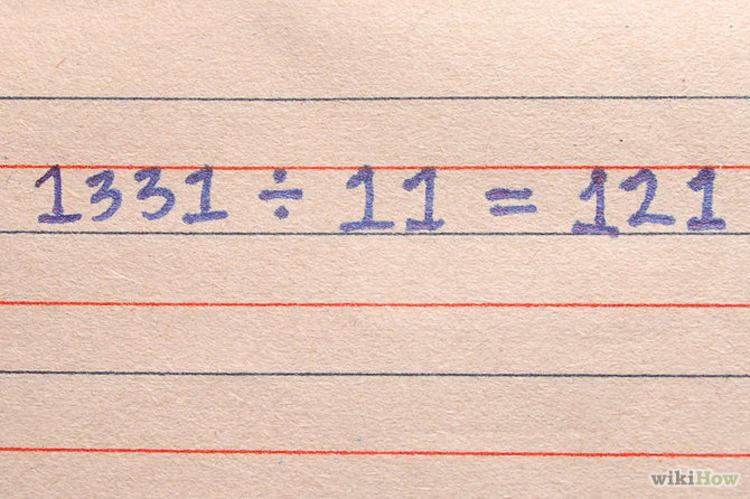Give it your best shot
Number Theory
Level
4
 Find the largest 9 digit integer number that consists of 9 distinct digits out of 10 (0, 1, 2, 3, .... , 8, 9) and is divisible by 11 leaving no remainder.
Find the largest 9 digit integer number that consists of 9 distinct digits out of 10 (0, 1, 2, 3, .... , 8, 9) and is divisible by 11 leaving no remainder.
The answer is 987652413.
This section requires Javascript.
You are seeing this because something didn't load right. We suggest you, (a) try
refreshing the page, (b) enabling javascript if it is disabled on your browser and,
finally, (c)
loading the
non-javascript version of this page
. We're sorry about the hassle.
The divisibility test for 1 1 is that the difference of the sum of digits at odd places ( 1 , 3 , 5 , . . . ) and even places ( 2 , 4 , 6 , . . . ) must be zero or a multiple of 1 1 .
O 1 − E 1 − O 2 − E 2 − O 3 − E 3 − O 4 − E 4 − O 5
Let the O represent odd place numbers and E represent even place numbers. We can use the numbers 0 , 1 , 2 , 3 , . . . . . 8 , 9 , so let us first suppose the maximmum possible number we can make with these digits each being used only once - 9 8 7 6 5 4 3 2 1 .
As the question requires that we need to make the maximum possible number divisible by 1 1 in that way, so we will try replacing out numbers from the right with other digits so that the number on a whole becomes divisible by 1 1 .
As in 9 8 7 6 5 4 3 2 1 difference between odd and even places is 5 , so we can make it 1 1 or 0 .
Replacing ones digit (first digit);won't work because we can replace it only with 0 which doesn't make the situation better.
Replacing first two digits (ones and tens) would again clearly not work as we have only two digits to with here ( 0 and 1 ) which don't make any difference.
Replacing first three digits : Only integers we can use - 0 , 1 , 2 . Try it out not going to make any difference and make the number divisible by 1 1 .
Now, comes the turn to replace first four digits, with a bit of logic and trial we can actually make the difference of the odd places numbers and the even places number 1 1 and thus making the number divisible by 1 1 , by replacing the last four digits as 2 − 4 − 1 − 3 .
And we got the answer - 9 8 7 6 5 2 4 1 3